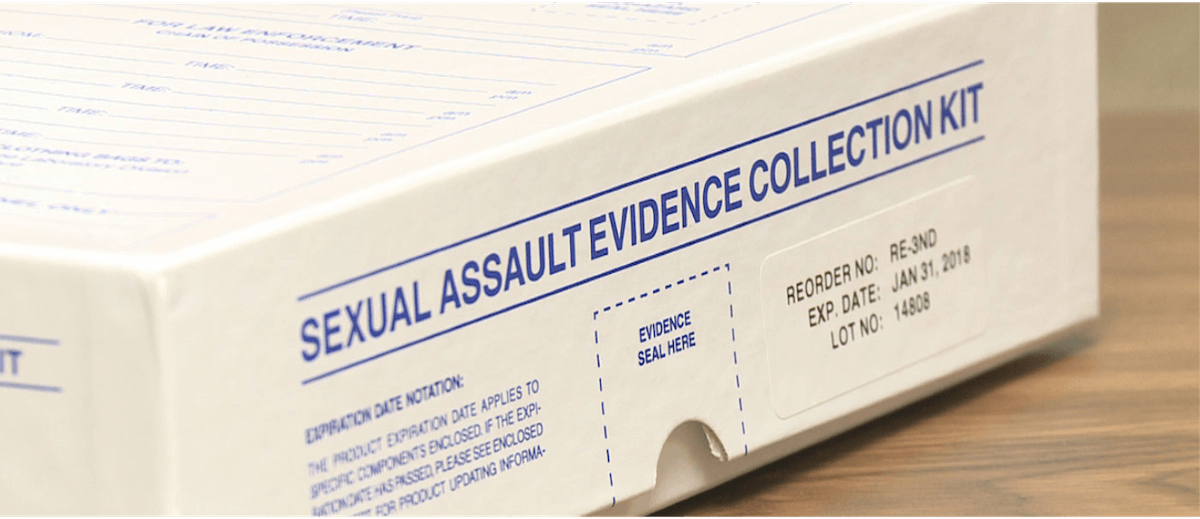
#image_title
#image_title
Bipartisan bill died last year when Assembly Republicans attached language about voucher school and immigrants.
Bills with bipartisan support are headed to the floor of the Wisconsin Senate designed to prevent another backlog of the state’s sexual assault test kits.
At a hearing on Thursday, the Senate Committee on Judiciary and Public Safety discussed one bill that would set statutory procedures and timelines for the collection, submission and processing of kits and another that would require the DOJ to create a database where survivors, law enforcement and medical professionals could track the status of a particular kit.
Both bills were authored by Republican legislators (Sen. Robert Cowles of Green Bay, Sen. Alberta Darling of River Hills, and Rep. David Steffen of Green Bay ) and co-sponsored by Senate Democrats, one of whom, Sen. Melissa Agard (D-Madison) testified on behalf of the bills.
“While it sometimes feels in this body and in this building that we’re destined to continue operating solely within our own parties. I am hopeful by what I see here today,” Agard said. “We’re showing our colleagues and other committees and in other bodies how it is we can do better.”
Do better
The Senate unanimously passed a bill last year with similar reforms. It had the support of nurses, law enforcement, sexual assault survivors, advocates, current and former state atttorneys general from both parties, and 56 bipartisan cosponsors in the Assembly. Gov. Tony Evers had signaled that he would pass it if it was approved by the Assembly. Similar reforms had been passed in 30 other states.
Wisconsin became the first state to block reform when Assembly Republican leadership let that bill languish in committee. Instead, they put forward their own bill that included two highly-partisan provisions.
One would have allowed parents of a school-age child who is raped or sexually assaulted to automatically qualify for a voucher to a private school if they go to school with their alleged attacker. The other would have allowed local police departments to notify US Immigration and Customs Enforcement when someone suspected of being in the country illegally is accused–but not yet convicted or acquitted– of rape or sexual assault.
Earlier: ‘Poison Pill’ Version of Rape Kit Bill Passes Assembly
Attorney General Josh Kaul said the voucher provision sent the message that the solution is for the survivor to leave the school, rather than the perpetrator, and that it let school districts off the hook for not supporting survivors. Victims’ advocates said the immigration provision would have deterred victims from coming forward, particularly if the survivor was undocumented.
Vos blamed the failure of the Assembly bill on partisanship, but it was Senate Republicans who refused to take up the tainted Assembly bill. And the chair of the Assembly Health Committee, Rep. Joe Sanfelippo (R-New Berlin), even claimed no bill was ever needed because the last backlog was fixed without new legislation.
In 2014, an audit from the Attorney General’s office found there was a backlog of over 6,000 untested kits across the state. The next year, the Wisconsin Department of Justice received $4 million to address the backlog, but former Attorney General Brad Schimel came under fire for the slow pace with which they were cleared.
In April, 2020, Kaul announced that 4,471 kits had been tested; 3,781 were not submitted for testing for reasons including lack of victim consent, a suspect’s acquittal, or because the kit was completed as part of an autopsy and no sexual assault was suspected.
Of the kits tested , 1,711 identified DNA not belonging to the victim, and of those 566 matched a profile on the Combined DNA Index System (CODIS). On February 9, Kaul announced that Hank W. Elmore, 37, of La Crosse, was convicted in the case of a sexual assault that happened in Jackson County in 2010 based on evidence from a kit that was finally tested in 2018.
How long to wait
The Senate committee on Thursday debated the question of how long to store test kits for individuals who decide not to pursue legal action. The current iteration of the bill would store those kits for ten years.
Sen. Kelda Roys (D-Madison) asked Michelle Viste with the DOJ’s crime victim services office why that was, and Viste said ten years is the statute of limitations for second-degree sexual assault, which is the most common sexual assault charge in Wisconsin courts.
Roys and Sen. Lena Taylor (D-Milwaukee) also asked if there might be a way to put the DNA evidence from a kit from a survivor who did not press charges into the federal CODIS system and notify the survivor if there was a hit; that way they would know if their attacker had attacked someone else.
“That could really motivate someone who didn’t want to go forward before,” Taylor said. “There is power in knowing that you wouldn’t be alone in your quest for justice.”
Roys pointed out that many sexual assault perpetrators are repeat offenders and that by destroying kits after ten years, “we’d be losing a tool to catch serial perpetrators.”
Viste said in order to add a DNA profile to CODIS, a report must be filed with law enforcement.
Another bill proposed by Sen. Andre Jacque (R-De Pere) would affirm an alleged victim’s right to decline a forensic examination, to bathe right after an examination, and to choose whether to cooperate with law enforcement. It would require law enforcement to notify the survivor 60 days before their test kit is destroyed.
That bill was introduced on Wednesday and sent to the Senate Committee on Judiciary and Public Safety, but has not yet been scheduled for a hearing.
Politics

‘I nearly died’: These women brought a grim warning to Wisconsin about abortion care restrictions
Traveling the country, they tell the real life-or-death situations that they faced because of extreme bans after the repeal of Roe v. Wade. For...

Opinion: It’s time for Congress to fight for small businesses instead of big corporations
May is National Small Business Month. Our elected leaders need to show leadership all year long. For the past 27 years I’ve been fortunate to pursue...
Local News

4 of the most iconic foods invented in Wisconsin
What is Wisconsin’s most iconic food? That’s a question we could spend all day debating, and for good reason: Badgerland is a food lovers’...

Four places it’s 100% okay to tip $0 in Wisconsin
Most people plan to tip at the usual suspects – restaurants, salons, ride-shares – but nowadays, it feels like customers are being prompted to tip...



